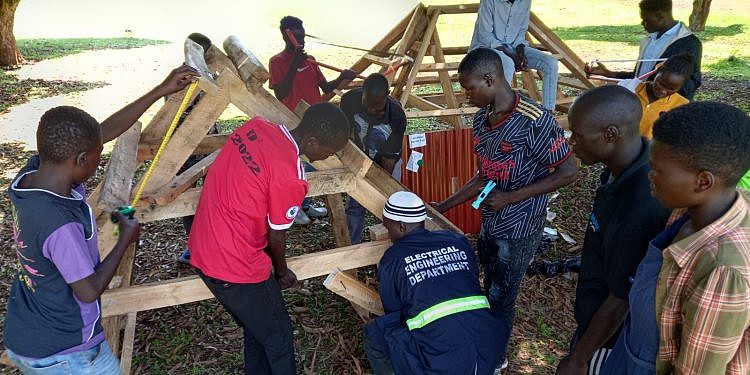Uganda Baati has through its corporate social initiative umbrella, the Safal Uganda Baati Foundation launched a youth empowerment skilling program targeting to equip over 500 youth in Tororo with entrepreneurial skills.
According to the World Bank, the Unemployment Rate in Uganda remained unchanged at 2.90 per cent in 2023 from 2.90 per cent in 2022.
Youth unemployment refers to the share of the labour force ages 15-24 without work but available for and seeking employment.
Tororo District, with a population of approximately 604,996, is home to around 373,317 young people aged 15-30 years.
Since the onset of the covid-19 pandemic, the district has seen a troubling 62% youth unemployment rate and a 29.5% rate of teenage pregnancies, higher than the national average of 25% among girls aged 15-19 years.
These statistics accentuate the urgent need for alternative socio-economic pathways for young people who are out of formal education.
In response, Uganda Baati under the Safal Uganda Baati Foundation has rolled out the Basic Economic Empowerment Skilling Program, designed to enhance employability and foster economic self-reliance among the youth of Tororo.
This initiative aims to transform young people into job creators rather than job seekers, offering them practical skills that can be immediately applied in the local economy.
“Our goal is to provide immediate and practical solutions to the challenges faced by our youth. This skilling program is not just about imparting technical skills but also about empowering young people to take control of their economic future,” George Mubiru, the Manager of Safal Uganda Baati Foundation noted.
“By equipping them with these essential skills, we hope to create a generation of entrepreneurs who can contribute positively to the socio-economic fabric of Tororo and beyond. The skilling program was kickstarted in May and will go on for 6 months in three phases. In phase 1 of the program, we introduced four basic marketable local trades: backyard gardening, fundi roofing skilling, liquid detergent making, and hairdressing. The training is structured to include not only technical skills but also essential life skills and business knowledge. Sessions on sexual reproductive health, financial literacy, branding, marketing, and business management are integrated into the curriculum to provide a holistic approach to youth employability,” Mubiru emphasized.
The program is designed for young people aged 14-25 years and is currently reaching 146 participants (93 females and 53 males), with approximately 45% of these being teenage parents.
It is projected to benefit over 500 youth by the end of the six months.
Training sessions are held four days a week, from Monday to Thursday, for three hours each day (9:00 AM – 12:00 noon).
Depending on the trade, the training duration ranges from a minimum of one month to a maximum of two months, culminating in a certificate of participation.






